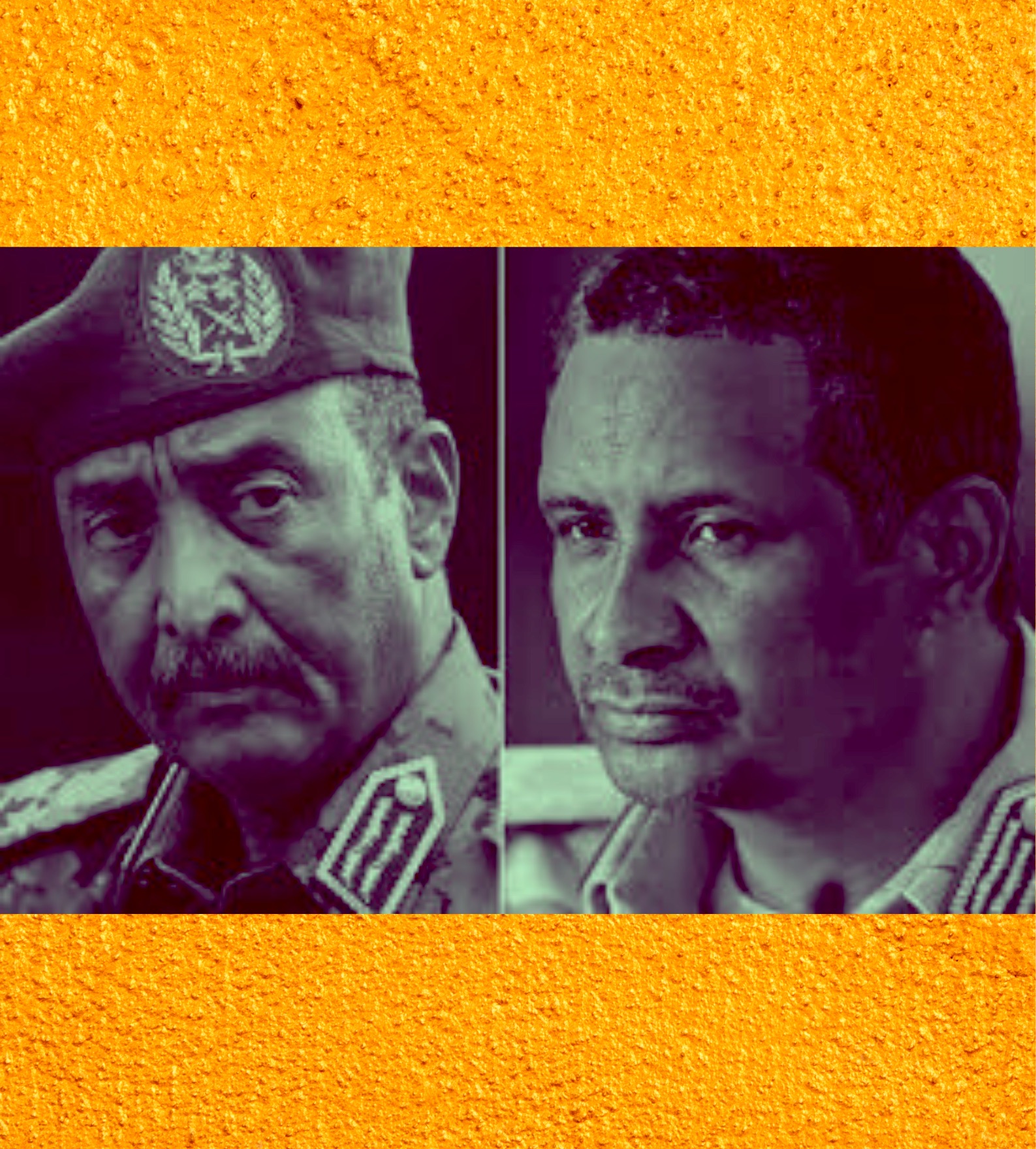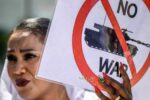More weapons embolden Sudan’s army to reject critical peace talks
26 August 2024
Despite considerable internal and external pressure, Sudan’s national army refused to attend the peace talks in Geneva, Switzerland, that concluded last Friday, dashing hopes for a much-needed ceasefire to take place in Sudan’s ongoing, 16-month-long war.
Instead, a diplomatic source attending the talks told Ayin, the Sudan Armed Forces (SAF) was under pressure from its Islamist backers not to attend the Geneva negotiations and seek a military victory after acquiring more weapons and military equipment from supportive countries. In his latest televised interview, the Assistant Commander-in-Chief Lt.-Gen. Yasser Al-Atta seemed to confirm this, saying that they have received advanced weaponry and that more weapons are coming, which, according to him, will ensure their victory over the paramilitary Rapid Support Forces.
Al-Atta and other senior army sources have claimed in the past that the army lacked modern military equipment, unlike the Rapid Support Forces (RSF) which are allegedly backed by the United Arab Emirates. Sources within the army believe the RSF’s access to modern weapons has contributed to their string of victories across the country, resulting in the loss of control over much of the capital Khartoum, Al-Jazeera state, the Darfur region and, more recently, Sennar State. The losses made securing a military supply lines the top priority for army commanders and have reached out to multiple sources, including Algeria, China, Egypt, Iran, Qatar, Russia and Turkey.
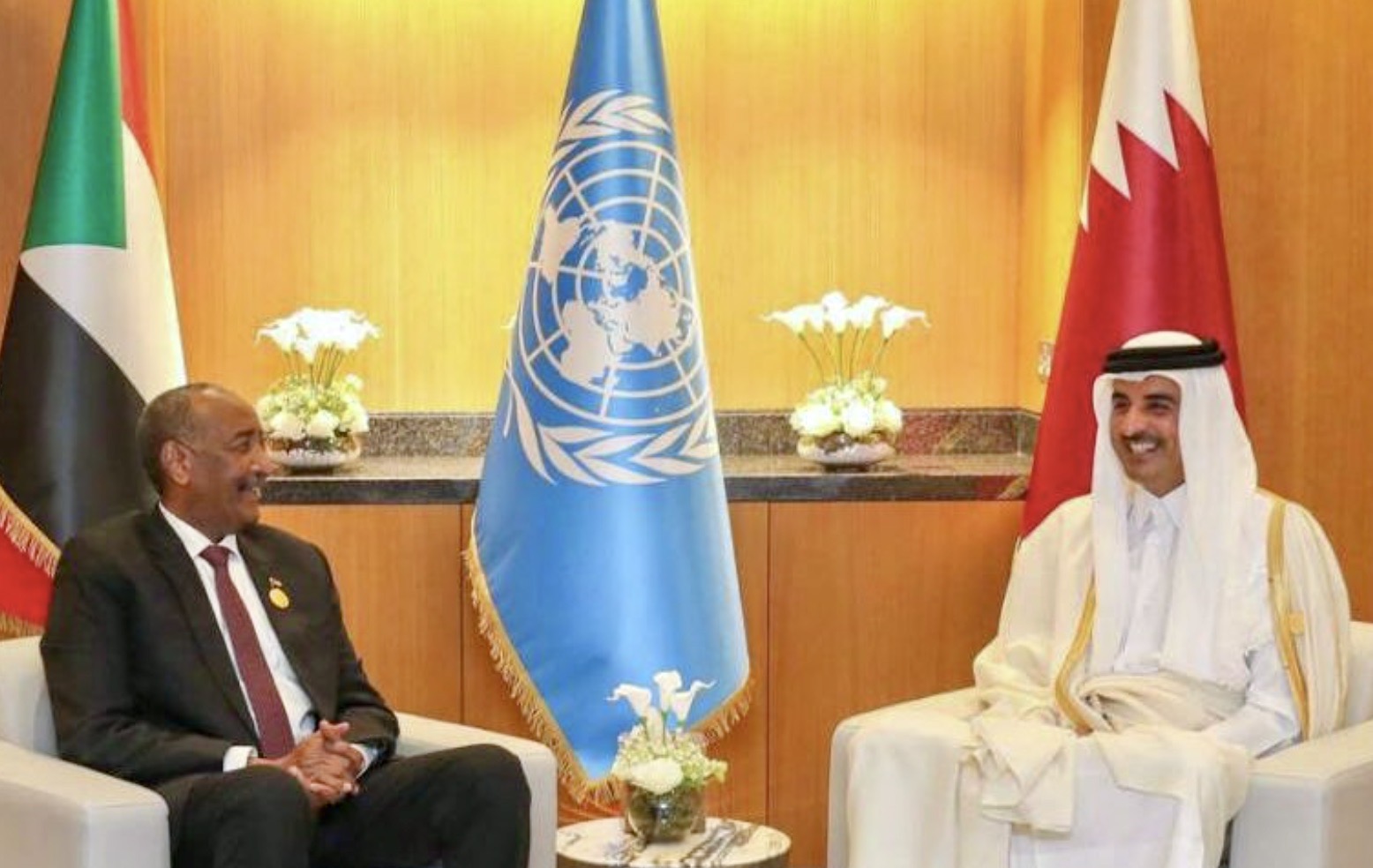
Qatar
Military sources speaking on the condition of anonymity, told Ayin that the army had received eight K-8 Chinese fighter jets this month. One source said this model is generally used for training purposes, but the army has modified these jets to be capable of bombing targets and represent a low-cost option costing US$ 20 million per jet. The same sources added this purchase was funded by a Gulf state.
Alberto Fernandez a former U.S diplomat, suggest that while he have no direct knowledge of which Gulf State could be funding these shipments, Qatar would naturally come to mind as a likely suspect. “The obvious suspect, of course, would be Qatar which also has excellent ties to countries like Turkey and Iran who are allies of the army, which is a rival of the UAE (United Arab Emirates) and which hopes that an army regime in Sudan will be sympathetic to the Islamists.”
In a statement, SAF spokesperson Nabil Abdallah refuted claims in August that the Chinese K-8 fighter jets were delivered recently from Egypt, but did not deny the acquisition of the K-8 aircraft. “We have possessed squadrons of this model of Chinese-made aircraft since the early 2000s, having acquired them from the People’s Republic of China two decades before the current war. There is no need to rely on any friendly country to obtain more of these aircraft.”
A source specialised in monitoring air traffic informed Ayin that the Falcon 2000 XLS, a military cargo plane, belonging to the Qatari Emiri Air Force, was tracked arriving in Port Sudan after deporting from Al-Udeid Air Base on 5 and 23 August. The flight number was THRB1, Squadron 1. The reasons behind these trips, however, remain unconfirmed. Despite Qatar’s Al-Udeid Air Base being the largest U.S base in the Middle East, Qatar is not required to inform the US of any travel activity with Sudan, Fernandez said. “Al-Udeid is a Qatari base –not just an American one– so the Qataris would not need American permission to fly from there to Sudan.”
Ayin reached out to spokesperson of the Sudanese Armed forces and the Qatari Foreign ministry for comment on the nature of these top trips and their unannounced status. No respond was received by time of publication.
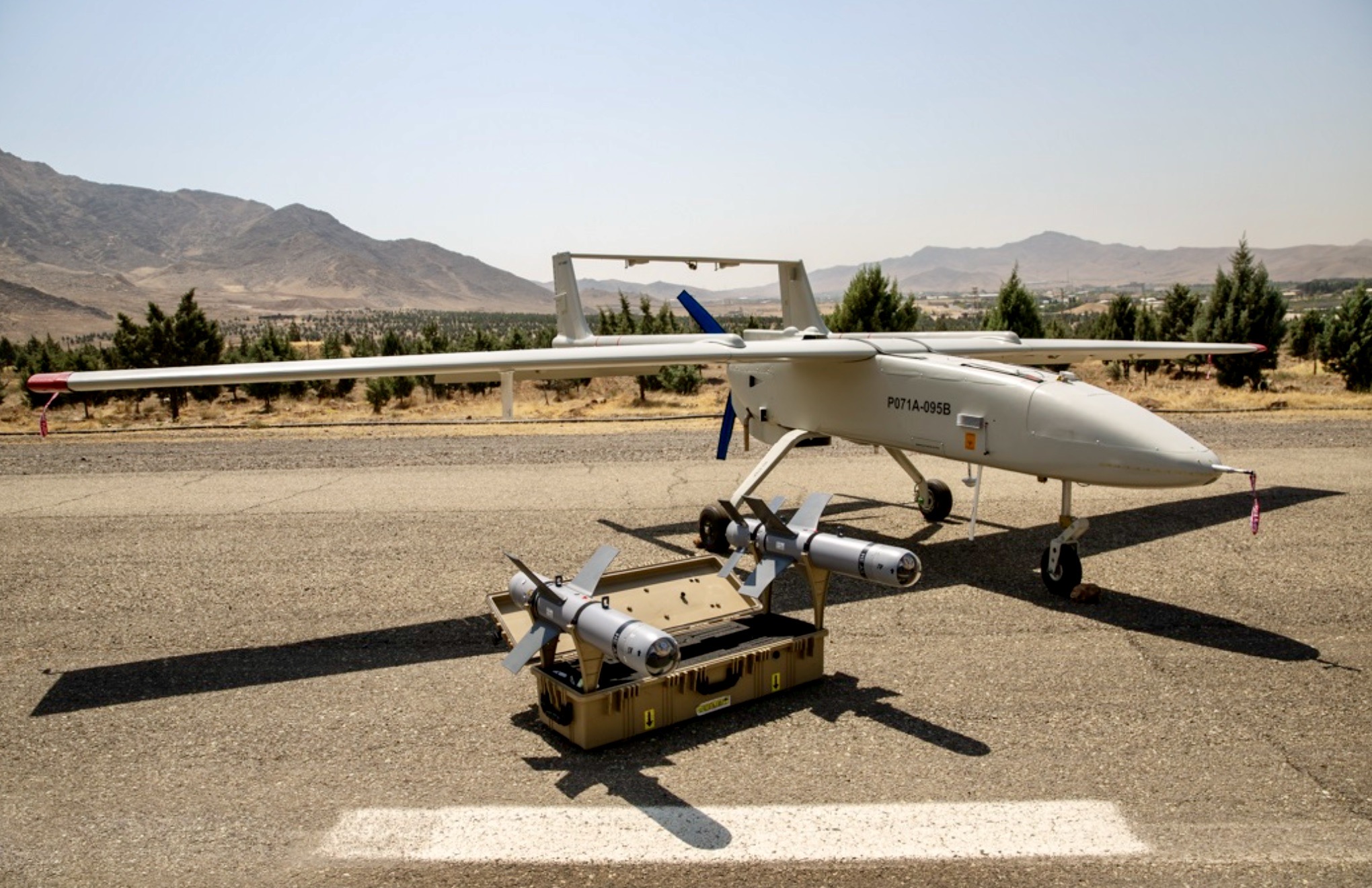
Iran
On 5 February, the acting foreign minister of the de-facto government of Port Sudan visited Tehran for the first time after a seven-year hiatus seeking military support. The military acquisitions and benefits from this visit can be seen in the widely circulated footage of battles, particularly the army’s operations to regain control of Omdurman, Khartoum’s sister city.
The footage showed extensive use of Iranian drones, specifically “Mohajer-6” which closely resemble the Turkish Bayraktar. According to one military expert with close links to SAF, advanced weaponry normally takes considerable time before it is delivered. The Mohajer-6 drones proved an ideal choice since they are readily available, and Iran has also offered to send experts to train the Sudanese personnel to use them. Ayin obtained tracking data showing continuous landing of an Iranian Cargo Plane in Port Sudan from January until this month. The aircraft, registered to Qeshm Fars Air, is a Boeing 747-200 with registration EP-FAB.
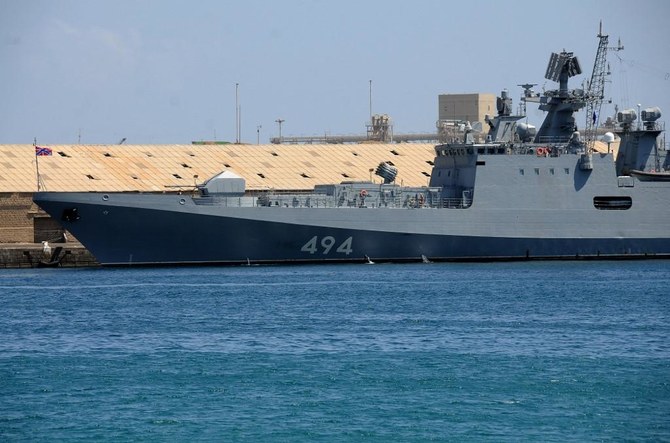
Russia
The Sudanese military, facing mounting needs, has also revived a deal with Russia to establish a naval base on Sudan’s red seacoast. General Yasser Al-Atta confirmed on Al-Arabia television that the Russia is offering weapon supplies in exchange for the base. This agreement initially made under the former Sudanese president Omar al-Bashir and halted after his ouster, has been reactivated due to current demand.
On 23 August the Russian Embassy in Sudan issued a statement, stating the issue of creating a Russian Navy base in Sudan can be resolved at any time, The embassy emphasised that Sudan “has repeatedly disavowed Western allegations about its alleged intention to terminate the current interstate agreement” with Russia.
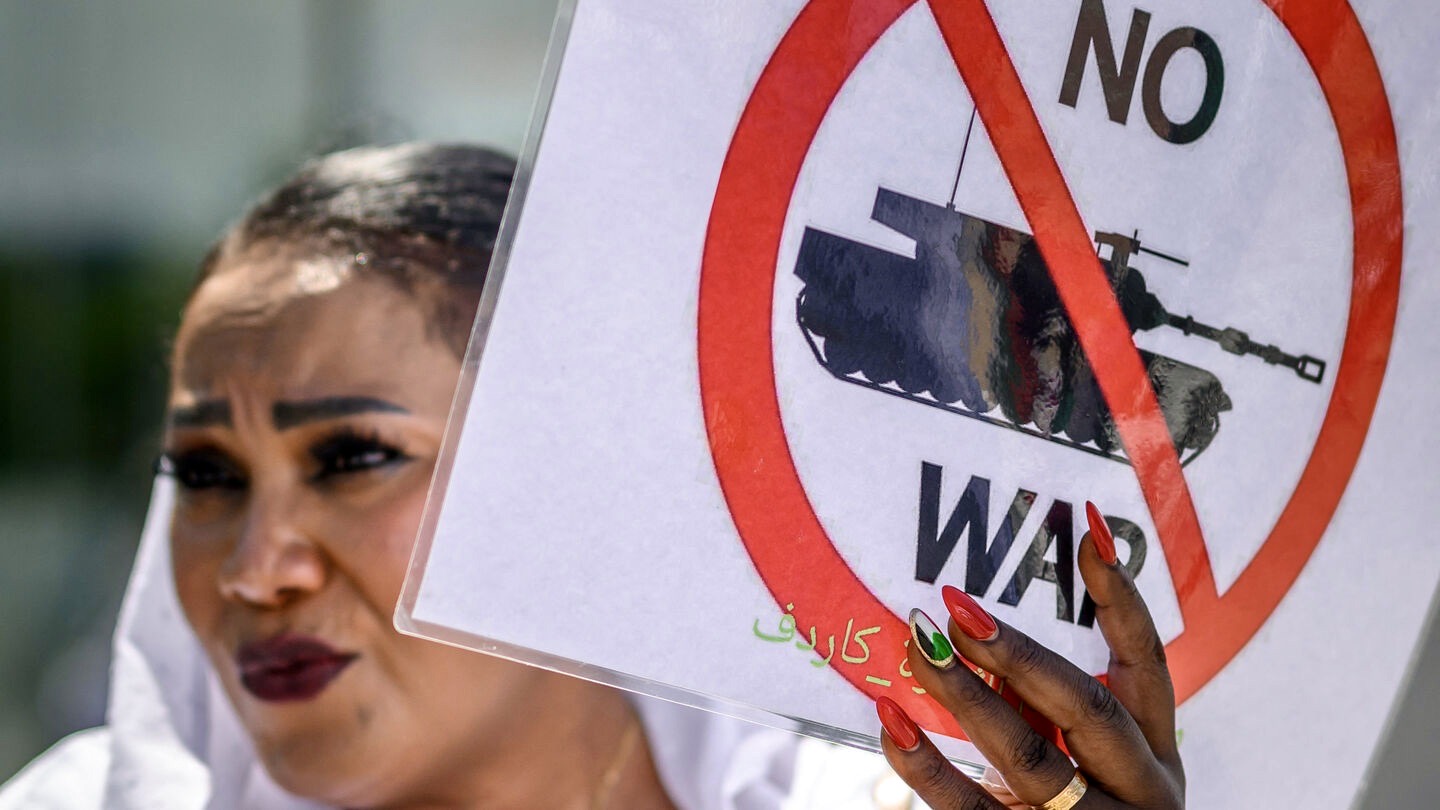
Peace hopes dashed
It seems that arms race between the warring parties in Sudan during the rainy season will hinder any international efforts to find a peaceful resolution. Both sides appear to be waiting for the end of rainy season to resume the battles with greater intensity.
“The army’s avoidance of negotiations in Geneva appears to be a tactic to buy time, highlighting their lack of decisive authority and reliance on regional and international Islamist allies,” said Shihab Al-Tayeb, member of the leadership committee of the Taqqdum, a civil anti-war coalition. “It’s clear that the army has received military support from several countries, indicating that Sudan may become a battleground for international and regional rivalries, posing a significant threat to neighbouring countries that have long been in politically and economically fragile situations.”
Fernandez believes that both warring parties rely on a military victory to end the war. “SAF is planning an offensive once the rainy season stops and it is receiving more weapons from its allies while the RSF is also planning for more war.” He stated that the impact of such new military assistance is clear: more war and destruction and more struggles for the Sudanese people.
“A cessation of hostilities is essential for delivering aid, something we need more than ever,” says Ahmed Mohsin, a member of the Bahri Emergency Response Rooms, a youth-led network of volunteers who support the war affected. “It goes without saying, the long the war continues, the greater humanitarian needs will become -and these needs are already immense.”


